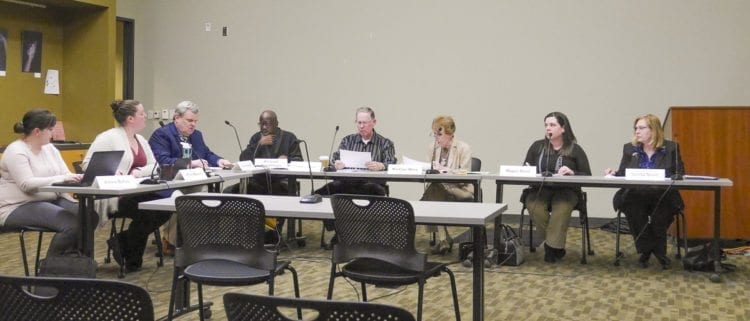The raise would be followed by a 2 percent increase in 2020
VANCOUVER — The citizens tasked with deciding how much of a raise Vancouver’s mayor and city council members should receive has settled on a number. Well, two numbers, to be precise.

The Salary Review Commission held its fifth meeting Friday morning, and agreed to recommend a three percent raise next year, with a two percent raise in 2020. The commission will hold a final public meeting on April 11 to see if anyone wants to try to change their minds. A final vote at that meeting would send the recommendation to the council for final approval.
The Salary Review Commission has worked under the shadow of their predecessors, who approved raises in 2016 that more than doubled the mayor’s salary, and increased council member pay by 50 percent. That increase was overturned after a public outcry and petition led by former mayor Royce Pollard. Eventually the commission settled on a 4 percent raise each of the past two years.
This year’s commission had asked current council members to fill out a questionnaire. At least one of those questions centered around whether the salary factored into the decision to run for city council. Current Mayor Anne Mcenerny-Ogle addressed the commission this morning. She said three council members have full-time jobs, and three are on pensions, but they find a way to make it work.
“Please consider, as you’re looking at our work,” the mayor said, “we knew what we were getting into. We knew what the charter told us.”
“We are policy makers,” she added. “We do not, or should not, drill down into the administration of the work. We have 1,019 staff members who are paid, and supervised by a great city manager who does a lot of the work.”
In her questionnaire, the mayor indicated that her position actually costs her money, but she told the commission that is her choice, and something she’s glad to do for now in order to try to create a better future for the city.
One aspect from last week’s meeting that was settled included whether the commission should consider the benefits package council members and the mayor have access to when it comes to deciding on a salary increase. With only commission Chair MarCine Miles wanting to include that criteria as part of their decision, the rest of the group determined it was outside of the scope of their work to include the question of benefits. Members of the council receive healthcare, life insurance, a mileage benefit, per diem, and access to the public employee retirement system. The value of those benefits was estimated at around $1,200 per month.
The commission had gathered data on cities with similar sizes and types of government as Vancouver, and determined that straight compensation numbers would indicate the council, mayor, and mayor pro tem made more than the average. But when breaking it down by cost per employee and percentage of budget the council made less than other cities.
If the Salary Commission’s recommendation is adopted, the mayor’s salary would increase to just over $31,000 by 2020, an increase of $1,500 from what she currently receives. The mayor pro tem would see their salary increase by around $1,300 to $27,271. Council members, who currently make $23,362 per year, would be earning $24,545 starting in 2020.




